If you have ever been to a beach for a vacation and have walked across the advancing and receding beach water, there is a huge chance that an unwanted object must have come, kissed your feet, and must have gone back into the wavy beach waters.
It feels so weird making you wonder if it was a sea creature trying to entangle or bite you. Worry not, it is an innocent little plastic and who knows it might be older than your grandfather!
The innocent plastic is not so innocent!! It will not bite or cause immediate damage but its impact can last for 450 years or longer. That’s right! The plastic once produced, can take more than 400 hundred years to decompose and break down. Imagine, the catastrophe it can cause once it goes inside the water – ocean pollution is at its peak and yes, it’s disastrous, to say the least.
(For the uninitiated, the plastic is made with chemical combinations derived from oil, natural gas, and coal – that makes it extremely slow to degrade)
How are Plastic and Ocean Pollution Linked?
The disposal of plastics is one of the highly problematic areas of the global world. Less than 10% of the total plastic gets recycled, mainly because of inefficient disposal and collection methods. A large part of plastic ends up in landfills or littered across places.
Due to the elements of nature (like rain, wind), it is broken down into tiny pieces called micro-plastics.
That’s when most of the damage occurs, as it gets easily mixed with soil and gets washed to our rivers and seas. According to a 2017 UN report, there are more than 51 trillion micro-plastic particles in the sea. By 2050, it is predicted that there will be more plastic than fish in the oceans.
Read the news
Many researchers have indicated that these small micro-plastics get ingested by the sea and water animals. Below is the screengrab from some of the leading news websites on the recent instances of plastic raising its ugly head.
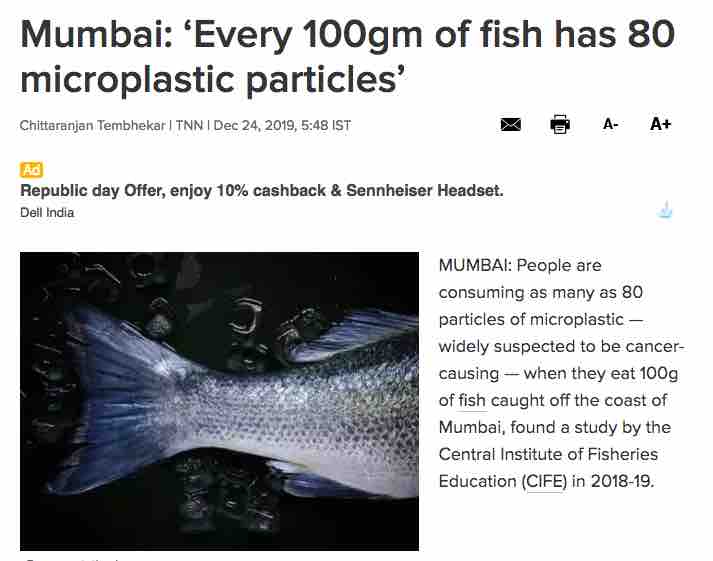

Times of India: 24-Dec-2019
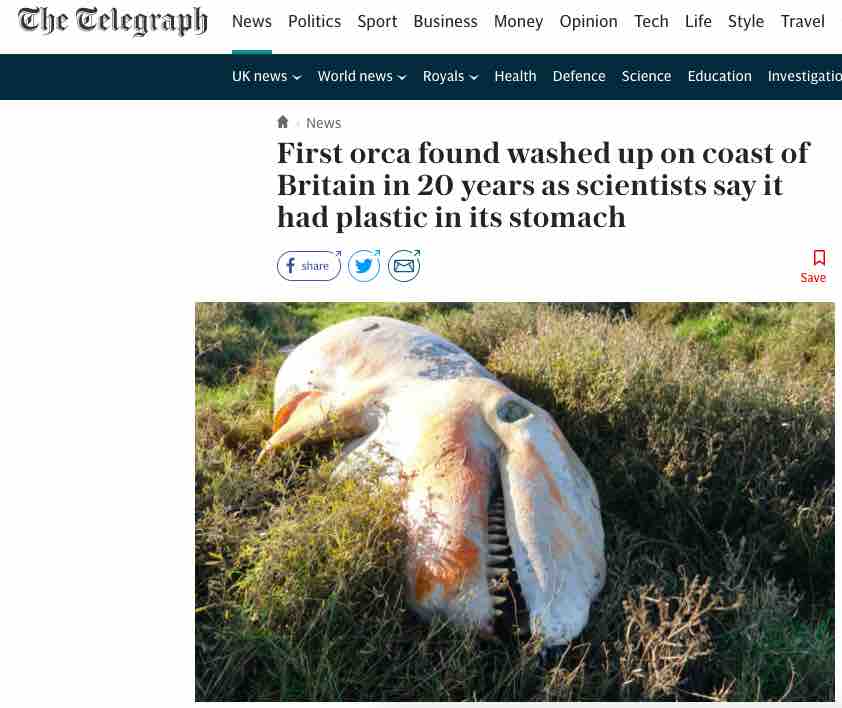



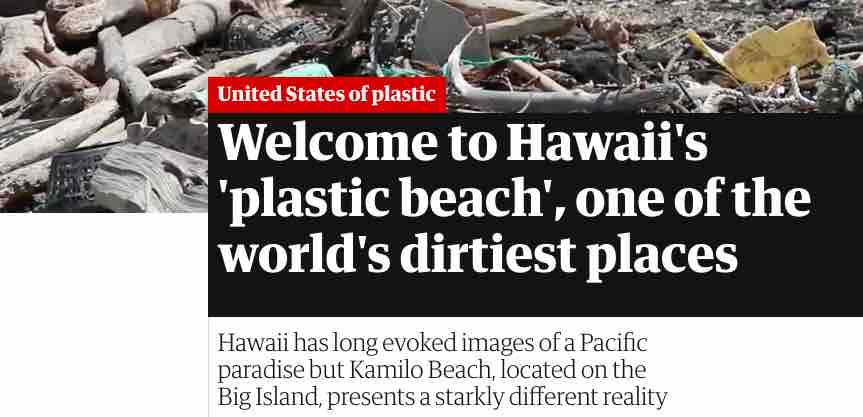

For the Connoisseur of Seafood – Pollution Check!
To all the fish & seafood eaters, who eat because of the love of it or the benefits it offers, fish is high in Omega-3 fatty acids and is instrumental in preventing stroke and overall heart health.
Is this true any longer?
For the Admirers of Nature – Environment Check!
If you are not a fish eater, we would hope that you care about nature and life. Fishes, turtles, crabs, even the tiny algae are essential for producing the oxygen which we all need to live.
These truly innocent creatures have been found with traces of plastic. Whales, octopus, seabirds, and many other animals including some of the endangered species have been found with guts full of plastic, a classic example of plastic and ocean pollution.
The Horrors of Plastic and Ocean Pollution
About a couple of years back in eastern Indonesia, a dead sperm whale was found with – 115 drinking cups, 25 plastic bags, plastic bottles, two flip-flops, and a bag containing more than 1,000 pieces of strings.
In another incident, in Thailand – a pilot whale was found dead with 80 plastic bags inside. There are many similar incidents where big sea animals have been found with discarded plastic inside their bodies.
It might not be clearly evident if the animals die just because they consume plastic or for other reasons, but there are hundreds of other visible shreds of evidence where marine life has died – strangled by a floating piece of plastic.
A video from the Australian Academy of Science on the impact of plastic on sea turtles
In Summary
While this is just a glimpse of the horrendous impact of using plastic and thereby the inefficiency of disposal system availability.
Meanwhile, if you and me become more responsible for our waste, limit our consumption of plastic, make a small change in our lifestyle, focus on recycling & reuse – We can make a difference in protecting our oceans and aquatic friends.

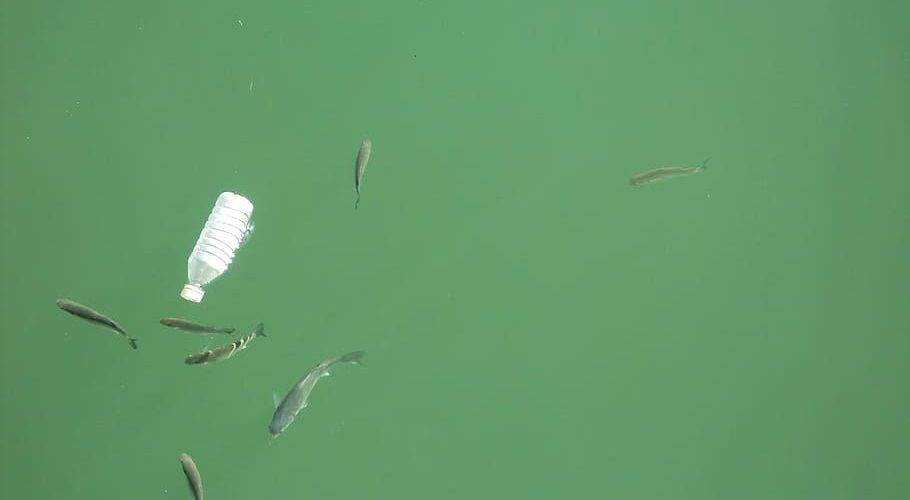
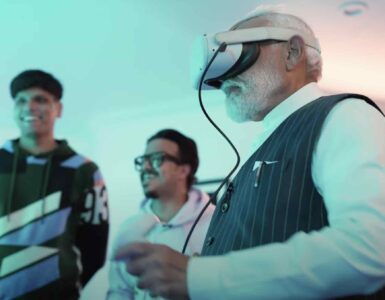
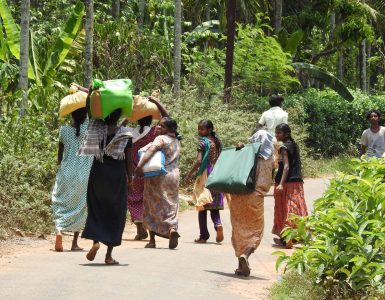


Add comment